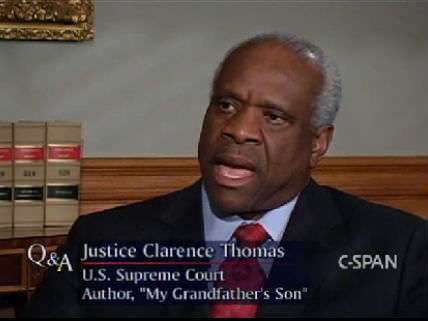Supreme Court Rules 9-0 for Susan B. Anthony List in Case Arising from Ohio 'False' Speech Law

The U.S. Supreme Court ruled unanimously today in favor of the conservative anti-abortion group Susan B. Anthony List, allowing the group to proceed with a First Amendment challenge against an Ohio law criminalizing "false" political speech.
The case of Susan B. Anthony List v. Driehaus arose during the 2010 congressional elections when the Susan B. Anthony List (SBA List) announced its intention to oppose the reelection campaign of Rep. Steve Driehaus (D-Ohio) by purchasing billboard and radio ads describing Driehaus' vote for the Patient Protection and Affordable Care Act as tantamount to supporting "tax-payer funded abortion."
In response, Driehaus filed a complaint with the Ohio Elections Commission charging SBA List with seeking to spread political lies about him. Driehaus' lawyer also sent a letter to the billboard company, threatening a similar complaint. The company promptly refused to run the SBA List ads.
In the meantime, SBA List was hauled before the Ohio Elections Commission, which ruled against it on a party-line vote. By this point, with the congressional election impending, SBA List's political speech had been effectively suppressed by the state of Ohio.
So SBA List filed suit in federal court, charging the Ohio speech law with violating its First Amendment rights. In a surprise twist, however, the U.S. Court of Appeals for the 6th Circuit ruled in favor of the state, holding that SBA List did not have standing to file suit because it could not demonstrate "an imminent threat of future prosecution."
Today, by a vote of 9-0, the U.S. Supreme Court overruled that decision and held that Susan B. Anthony List must be allowed its day in federal court. "The threat of future enforcement of the false statement statute is substantial," declared the unanimous majority opinion of Justice Clarence Thomas. What's more, Thomas wrote, "the specter of enforcement is so substantial that the owner of the billboard refused to display SBA's message after receiving a letter threatening Commission proceedings. On these facts, the prospect of future enforcement is far from 'imaginary or speculative.'"
The decision in Susan B. Anthony List v. Driehaus is available here.


Show Comments (70)